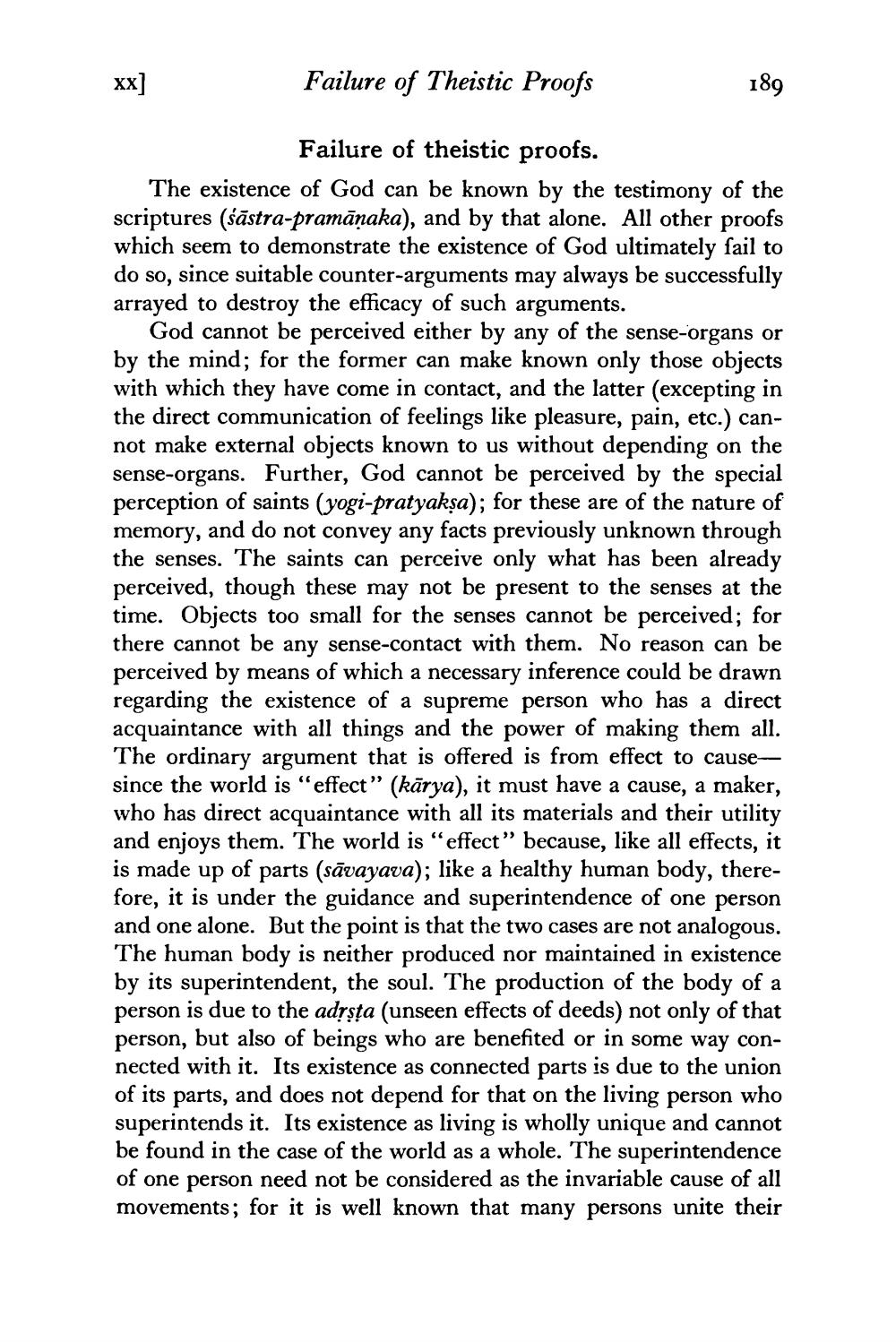________________
XX
Failure of Theistic Proofs
189
Failure of theistic proofs. The existence of God can be known by the testimony of the scriptures (śāstra-pramāņaka), and by that alone. All other proofs which seem to demonstrate the existence of God ultimately fail to do so, since suitable counter-arguments may always be successfully arrayed to destroy the efficacy of such arguments.
God cannot be perceived either by any of the sense-organs or by the mind; for the former can make known only those objects with which they have come in contact, and the latter (excepting in the direct communication of feelings like pleasure, pain, etc.) cannot make external objects known to us without depending on the sense-organs. Further, God cannot be perceived by the special perception of saints (yogi-pratyaksa); for these are of the nature of memory, and do not convey any facts previously unknown through the senses. The saints can perceive only what has been already perceived, though these may not be present to the senses at the time. Objects too small for the senses cannot be perceived; for there cannot be any sense-contact with them. No reason can be perceived by means of which a necessary inference could be drawn regarding the existence of a supreme person who has a direct acquaintance with all things and the power of making them all. The ordinary argument that is offered is from effect to cause-- since the world is “effect" (kārya), it must have a cause, a maker, who has direct acquaintance with all its materials and their utility and enjoys them. The world is “effect" because, like all effects, it is made up of parts (sāvayava); like a healthy human body, therefore, it is under the guidance and superintendence of one person and one alone. But the point is that the two cases are not analogous. The human body is neither produced nor maintained in existence by its superintendent, the soul. The production of the body of a person is due to the adrsta (unseen effects of deeds) not only of that person, but also of beings who are benefited or in some way connected with it. Its existence as connected parts is due to the union of its parts, and does not depend for that on the living person who superintends it. Its existence as living is wholly unique and cannot be found in the case of the world as a whole. The superintendence of one person need not be considered as the invariable cause of all movements; for it is well known that many persons unite their




